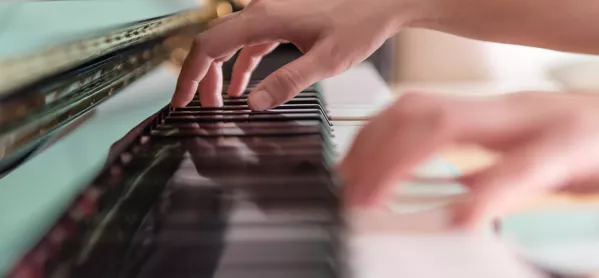Want to keep up with the latest education news and opinion? Follow TES USA on Twitter and like TES USA on Facebook.
Professor Anders Ericsson has achieved the kind of success that academics dream about. But this has morphed into the kind they have nightmares about: his ideas have become so well-known that they are widely misunderstood. In Ericsson’s case, this is down to the writer Malcolm Gladwell seizing on Ericsson’s research for his book Outliers: the story of success in order to answer a question that occupies the mind of every teacher: what makes exceptionally successful people different?
Thanks to Gladwell and his use of Ericsson’s work, the memorable answer became known as the “10,000-hour rule” - the idea that 10,000 hours of practice are needed to create expert performers. The concept that any of us could fulfil our dreams of stardom by clocking up the hours was instantly appealing.
Speaking from his office at Florida State University, Ericsson wants to make it clear that this interpretation is largely problematic. It’s wrong because the 10,000-hour figure is completely arbitrary: it’s just an appealing round number that Gladwell spotted in a research paper about musicians. Some tasks take more time and some less, but in any case, merely putting in hours of rote repetition won’t turn everyone - or anyone - into a superstar.
However, the interpretation is right in one major respect, Ericsson says. No one gets to the top without hours of deliberate practice.
Try, try again
“It may not take exactly 10,000 hours, but it will take a lot,” he says. “That’s the most important factor in determining success: if you stop trying to succeed, you’re not going to succeed.”
One traditional idea of talent is that we must spot potential early and nurture it carefully to fruition. Ericsson’s research into expert performance debunks this. He started at the end point, by examining the characteristics of experts and seeing what they had in common. One by one, the ways in which we think we can predict who will display talent were ruled out, until all that was left was the extent and quality of practice.
Take IQ, for instance. We know that it is influenced by genetics and that it predicts achievements in education. But Ericsson (pictured below) says that there’s no evidence that it determines who is likely to reach the top in intellectual pursuits such as science. “There was basically a zero correlation,” he adds. He points to a study of eminent scientists which found that many of them had IQs below average for PhDs, even though they outperformed their rivals.

The Nobel prizewinning physicist Richard Feynman and James Watson, co-discoverer of the structure of DNA, belong to this category, with an IQ of around 125 - certainly good enough for a gifted and talented programme, but not the sort of performance that would have had their teachers predicting they would change the world.
Ericsson says IQ does matter when we first try to learn a new skill: high-IQ students are likely to pick things up more quickly. But, eventually, everyone runs into obstacles to their learning. That’s where deliberate practice comes in.
It’s defined as highly structured activity, designed to improve performance through immediate feedback, and it’s the key factor that separates the best from the rest, according to Ericsson’s research. It takes a lot of concentration, and it’s not supposed to be fun: he distinguishes it from both play and from work, which offers external rewards.
What would it look like in the classroom? In his recent book, Peak: secrets from the new science of expertise, Ericsson points to an experiment at the University of British Columbia, where lectures were replaced with a flipped-classroom model, which focused on identifying and addressing weaknesses in the students’ understanding. The result: they were 2.5 times more likely to get test questions right at the end of the course.
Ericsson also says results are encouraging for Jump Math, another Canadian programme that breaks learning down into well-specified skills designed to allow for the kind of feedback-and-try-again approach that characterises deliberate practice.
Probe your weaknesses
However, he concedes that deliberate practice goes against the grain of our expectations. We think that as our abilities grow, practice should become almost automatic.
“For a lot of people, it’s kind of the default view that you learn the rules, you keep engaging and training, and then you automate and you basically reach your peak performance,” Ericsson says. But he claims the reverse is true: for practice to be worthwhile, it has to continually probe our weaknesses and focus on areas we find difficult.
Other experts, such as Professor Zachary Hambrick, of Michigan State University, argue that the data as a whole doesn’t support deliberate practice as the only or main component of expertise. Among chess players, for example, the slowest take 22 times more practice than the fastest to become grandmasters: surely that must reflect some innate ability?
In education, the impact of deliberate practice seems weakest: one meta-analysis found that it might account for only 4 per cent of educational performance.
But if Ericsson is right, our whole approach to developing students’ abilities would have to change, from finding talent to creating it.
“There’s this common view that, at least until you get to be an adult through the school system, your primary job is just to go around sniffing for opportunities to find your gifts,” he says. “I basically have found no evidence that people are finding their gifts.”
Joseph Lee is a freelance journalist. He tweets @josephlee





